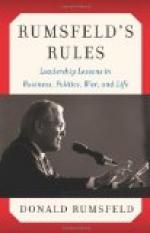The centre of gravity is in Natal, where the greater part of the Boer army and the greater part of the British force in South Africa are confronting one another. There are three British divisions, strong in infantry but weak in artillery, and there is cavalry enough for a strong division. But one of the divisions has been invested and bombarded with more or less persistence since the beginning of November, and the other two are not yet known to be quite ready to move. Sir George White’s force is reported to be on short rations, and some of the messages from correspondents in Ladysmith declared a week ago that it was high time for relief to come. The force can hardly be as yet near the limit of its resisting powers, but it is evidently nearing the stage when after relief it will need rest and recuperation instead of being ready for a vigorous and prolonged advance. General Buller with two divisions will shortly set out to force the passage of the Tugela and to fight his way round Ladysmith, either on the east or on the west, so as to cut off either the retreat to the Free State or that to the Transvaal of the Boer army. If Sir Redvers Buller can in this way win a victory in which the enemy is not merely pushed back, but controlled in his choice of the direction of his retirement, the issue of the campaign in Natal will be settled, and the British Commander will be able to consider his great purpose—the crushing of the Boer armies. The long wrestle between Sir George White and the Boers has no doubt produced a state of exhaustion on both sides, and by the time the decision comes exhaustion will be turned into collapse. If, as we trust, it should be a Boer collapse, Sir Redvers Buller’s best policy, if practicable, will be to follow up a success with the utmost promptitude and vigour, to push on through the mountains, and open a doorway into the country beyond them. A check to Sir Redvers Buller’s advance would be disastrous. He can take no more troops from the Cape. The fifth division can hardly be at his disposal before Christmas, for the first transport did not start till November 24th, and the last has not yet left. But a check means insufficient force, and is as a rule to be made good only by reinforcement. It is clear, then, that Sir Redvers Buller must not be checked; he must cross the Tugela and must win his battle. I think that with his twenty thousand men he may be trusted to do both, even if the Boer force is as large as the highest estimates that have been given.
The four decisions pending—at Kimberley, north of Queenstown, at Ladysmith, and on the Tugela—are here represented as all doubtful. I do not expect any of them to go wrong, but it is wise before a fight to reckon with possibilities, and where the enemy, stubborn, well-armed, and skilful, has also the advantage of numbers, it would be folly not to consider the possibility that he may hold his ground. There are elements of success on the British side that should




